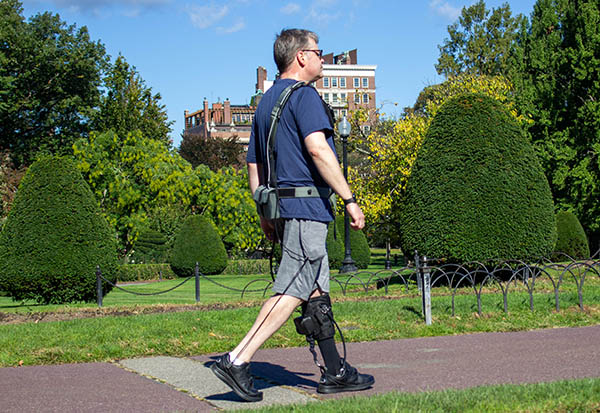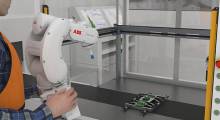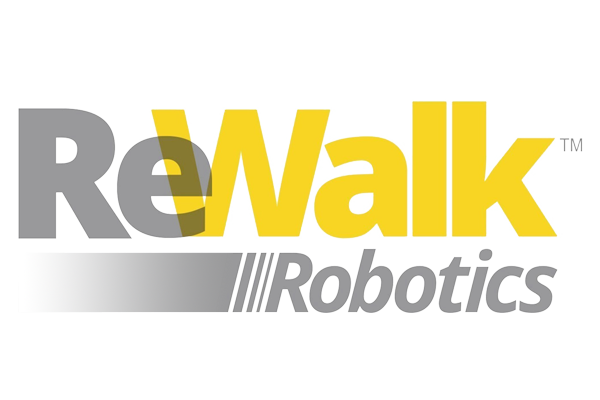This week, the commonwealth of Massachusetts awarded $3,057,320 to Harvard University and Boston University to support the development of next-generation robotics and wearable technologies. The new grant will help researchers working to improve the lives of people with neuro-motor impairments and to help individuals achieve ambitious fitness goals, according to the Baker-Polito administration.
The project will also help drive innovation in a new category of rehabilitation, diagnostic, and assistive devices that are more lightweight, affordable, and connected, said the Innovation Institute at the MassTech Collaborative.
“Massachusetts is a global leader in both technology and healthcare because of our support for important research, the ability to leverage our network of partnerships, and our constant focus on fostering innovation,” said Gov. Charlie Baker. “With these additional resources, we can advance the development of new assistive devices that will have applications for patients around the world.”
With aging populations worldwide and new technologies to help people with neurological impairments, research analysts expect the global market for assistive devices to continue to grow. Technavio forecast a compound annual growth rate (CAGR) of 7.26% from 2020 to 2025 to $7.93 billion (U.S.).
Mordor Intelligence predicted a CAGR of 31.36% in wearables and exoskeletons between 2021 and 2026. Fortune Business Insights was even more bullish, saying the exoskeleton market will grow from $952 million this year to $11.9 billion in 2029 at a CAGR of 43.6%.
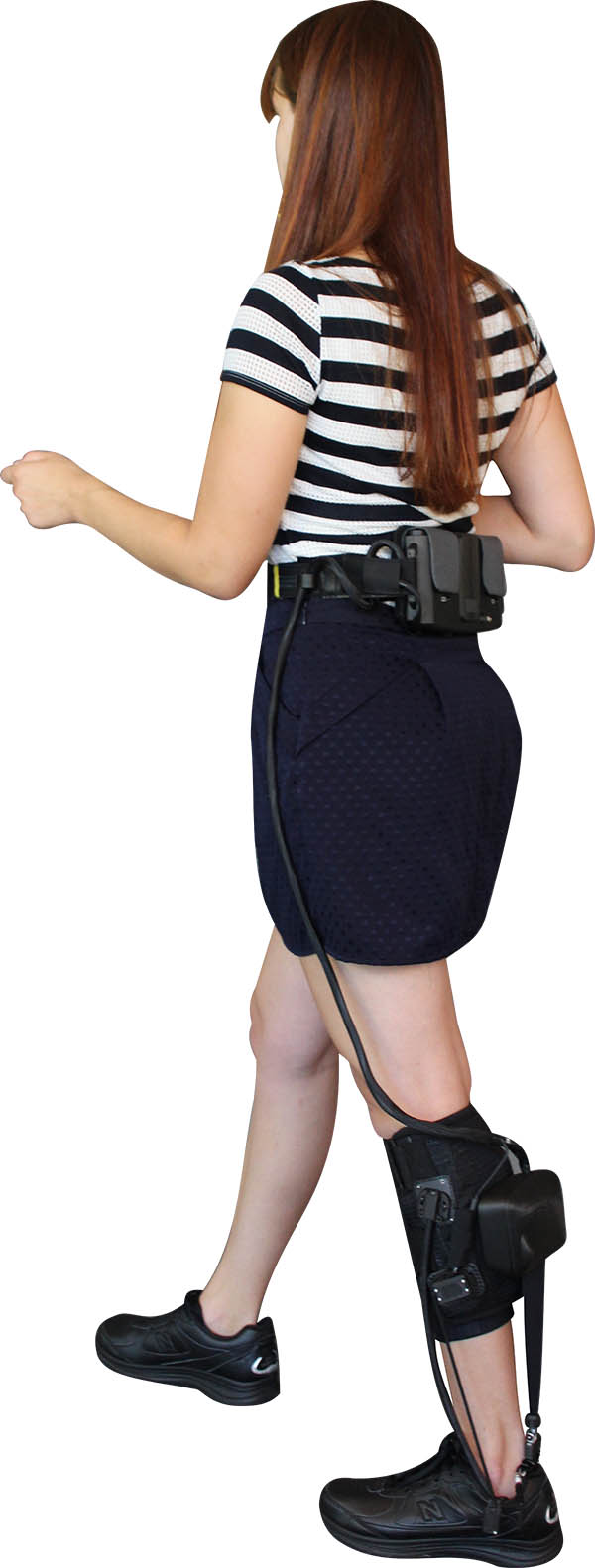
Massachusetts partners with ReWalk, Imago
The first two industry partners are Marlborough, Mass.-based ReWalk Robotics Inc. and Arlington, Mass.-based Imago Rehab. ReWalk designs and develops powered systems to provide gait training and mobility for lower limb disabilities.
Imago Rehab is a startup founded by Harvard engineers in 2021 to improve recovery outcomes for stroke survivors through a combination of home-use wearable robotics and digital health.
The new award was made by the Innovation Institute at the Massachusetts Technology (MassTech) Collaborative from the commonwealth’s Collaborative Research and Development Matching Grant program.
MassTech is a quasi-public economic development agency for the state. It has provided funding to MassRobotics and other organizations.
Created in 2003, the Innovation Institute conducts research into unmet needs and opportunities, serves as a strategic broker, manages high-value projects, and makes strategic investments into innovation.
“Our Innovation Institute team launched information sessions on the R&D grant program, designed to uncover new research collaborations that can advance our tech and innovation ecosystem,” said Carolyn Kirk, executive director of the MassTech Collaborative.
“The proposals that receive grants are reviewed by an independent advisory group, which identify the key qualities that we look for in investments: ability to grow jobs, collaboration with the private sector, and engaging in areas of research and development where Massachusetts can play a global leadership role.”
State supports Harvard and BU scientists
Led by the Harvard John A. Paulson School of Engineering and Applied Sciences (SEAS), the project involves a collaboration with the Boston University College of Health & Rehabilitation Sciences at Sargent College, as well as with industry partners bringing innovations to market.
“Across the state, our administration has made key investments that boost research and development programs staffed by our top students and faculty researchers,” said Lt. Governor Karyn Polito. “Robotics and medical devices are two areas where Massachusetts is a global leader, and this new investment will help keep us there.”
SEAS connects Harvard’s teaching and research efforts in engineering, applied sciences, and technology. It said it works with other universities, as well as corporate and foundational partners, to improve human life and society.
“We are grateful for the commonwealth’s leadership in fostering a thriving innovation ecosystem,” said Francis J. Doyle III, dean of SEAS. “This collaboration between government, academia, and our state’s robotics sector positions us to push the frontiers of knowledge, create new technologies, and most importantly, deliver life-changing solutions to patients.”
Sargent College said it focuses on serving health care needs through academics, research, and clinical practice. It has more than 25 on-campus research facilities and clinical centers and offers degree programs in occupational therapy, physical therapy, speech, language and hearing sciences, health science, human physiology, behavior and health, and nutrition.
Funds go to four research projects
The funding will initially support four specific research projects. They are part Harvard and BU’s broader efforts to commercialize research that can help people recover injury, extend capabilities as they age, and restore them to people who have lost them. They include:
- Ankle device for home or community-based gait training after stroke
- New sensing and diagnostic approaches for high-dose/high-frequency rehabilitation at home that can be enabled for a soft robotic glove
- Lower-limb neuroprosthesis for electrical stimulation of muscles
- Wearable sensors and algorithms for strength and movement assessment by medical and fitness professionals
Three of these devices directly address stroke recovery, a fast-growing market with millions in need, noted MassTech. The fourth project will focus on transferring that knowledge to the strength and movement training market.
All four products will be ready for product-market testing within 24 months, creating a direct pathway to commercialization, said MassTech.
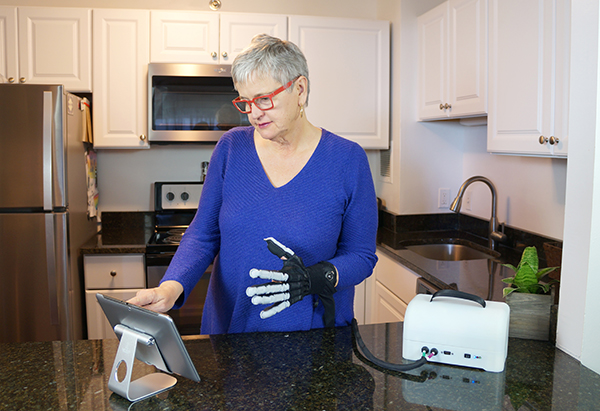
Bunker Hill, Harvard Move Lab among collaborators
The grant, combined with existing resources, will support a $6 million effort to equip Harvard facilities to develop and evaluate wearable product prototypes. With support from Harvard's Office of Technology Development, the initiative is intended to help commercialize these products and grow the state's robotics, digital health, and apparel sectors.
“I am glad that Harvard will be receiving an Innovation Institute’s Collaborative Research Matching Grant this year,” said Sumbul Siddiqui, mayor of the city of Cambridge, Mass. “The groundbreaking research done at Harvard and our other universities is what helps to give Cambridge the reputation as a hub of innovation and creativity, and I am happy to see them supported by MassTech.”
In addition, the project will work with Bunker Hill Community College to help train and grow the Massachusetts workforce in these fields, said the MassTech Collaborative.
Activities will be centered at the Harvard Move Lab with guidance by Faculty Director Conor Walsh and Executive Director David Perry. The recently launched laboratory focuses on advancing technologies in coordination with Harvard schools, local institutions, and industry partners in Allston, Mass.
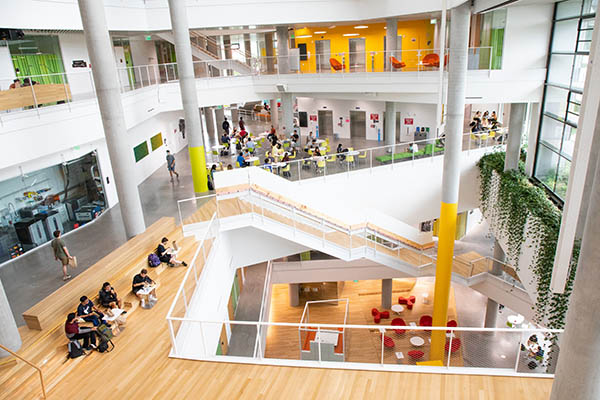
More grants available
“Assistive robotics is poised to have a major impact on a host of industries, from manufacturing to healthcare,” said Mike Kennealy, secretary of housing and economic development for Massachusetts.
To date, the Collaborative R&D Matching Grant program has awarded more than $31 million, along with more than $50 million in matching contributions from outside partners, said MassTech. This includes 10 projects that have supported innovative industry/academic collaborations and investment in novel R&D infrastructure.
Emerging industries supported under through the grant program include cloud computing, marine robotics, printed electronics, cybersecurity and data science, and nanomaterials and smart sensors. These investments have led to the formation of 79 new industry partnerships, as well as 54 intellectual property and licensing agreements in the past two years, according to MassTech.
Organizations interested in applying for a Collaborative R&D Matching Grant learn more at the program's website.
Article topics
Email Sign Up

